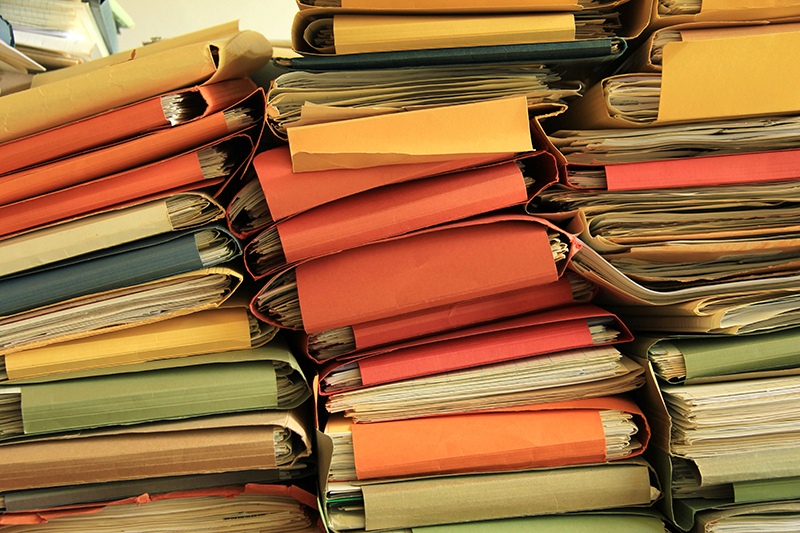How long should I keep tax records?
April 01, 2017 by Charla Suaste
This year’s tax season is quickly coming to an end and, at this time, taxpayers around the country are busy sifting through, organizing, and shredding thousands of tax documents. For this reason, we can bet that one of the most frequent questions rattling around in everyone’s mind is: How long exactly should I be keeping these items? When is it safe to stick old tax documents in the shred bin?
While the IRS has its own statute of limitations that dictates how long we should hold onto tax documents, the statute of limitations for other agencies, businesses and individuals – such as creditors, realtors, property holders, etc. – may differ. Make sure to check with all involved parties before getting rid of documents that were once considered important. Another way to put it could be: “When in doubt, don’t throw it out!”
In regard to IRS rules for keeping records and income tax returns, the general rule is that you must keep records for the period of time during which the IRS can audit you and assess additional tax – or during the period in which you can claim a credit or refund by filing an amended tax return. A basic list of limitations is listed below:
- All taxpayers should keep their income tax returns and supporting documents for at least three years.
- Taxpayers who owed tax should keep their income tax records for three years after completion of paying the tax they owe.
- Taxpayers with employment tax records should keep their records for four years.
- Taxpayers who do not report income that should have been reported - and that income is more than 25% of the gross income shown on their return - should keep their tax records for six years.
- Taxpayers who have filed a claim for a loss from worthless securities or bad debt deduction should keep their tax records for seven years.
- Taxpayers who have not filed a tax return, or who have filed a fraudulent tax return, should keep their records indefinitely.
Please note that these timeframes go into effect the date the tax return has been filed. It is also important to note that no two tax returns are the same, so always err on the side of caution. It is better to keep your documents for too long rather than disposing of them too soon!
For more detailed information regarding how long to keep IRS records, please visit IRS.gov.





